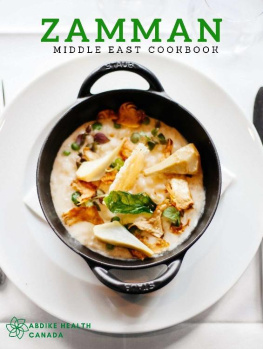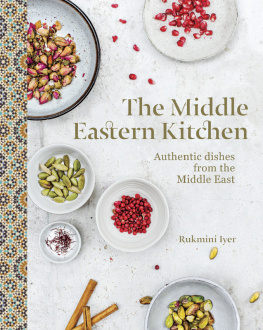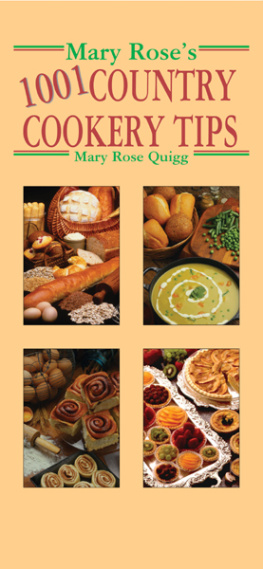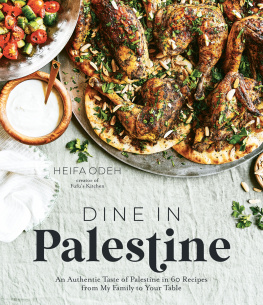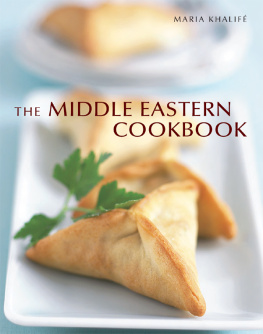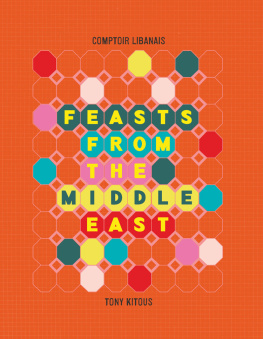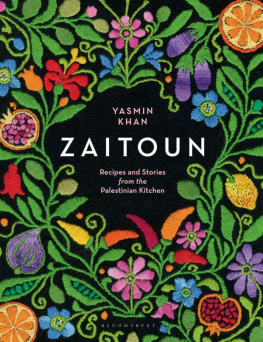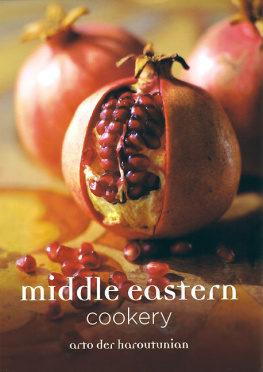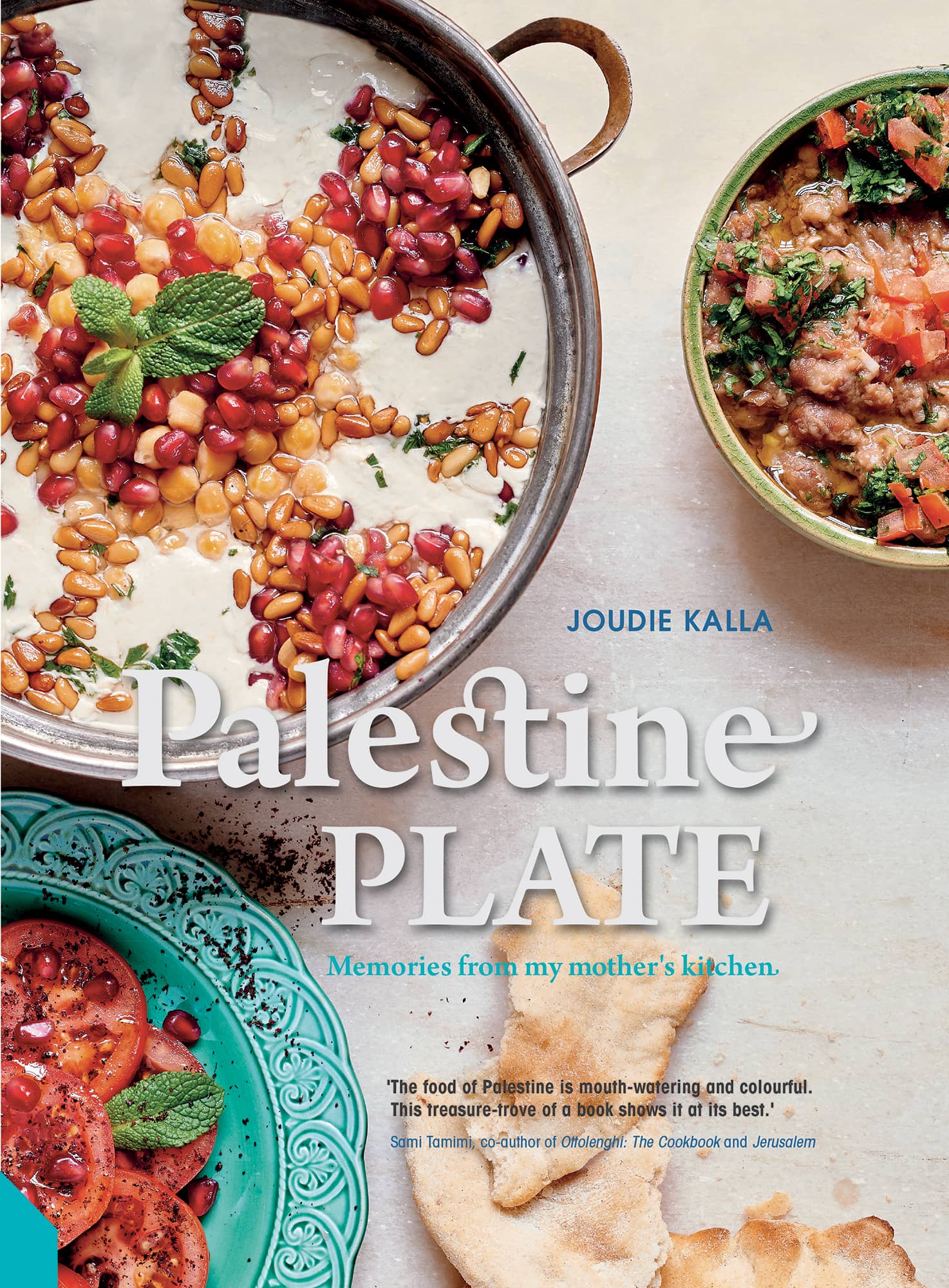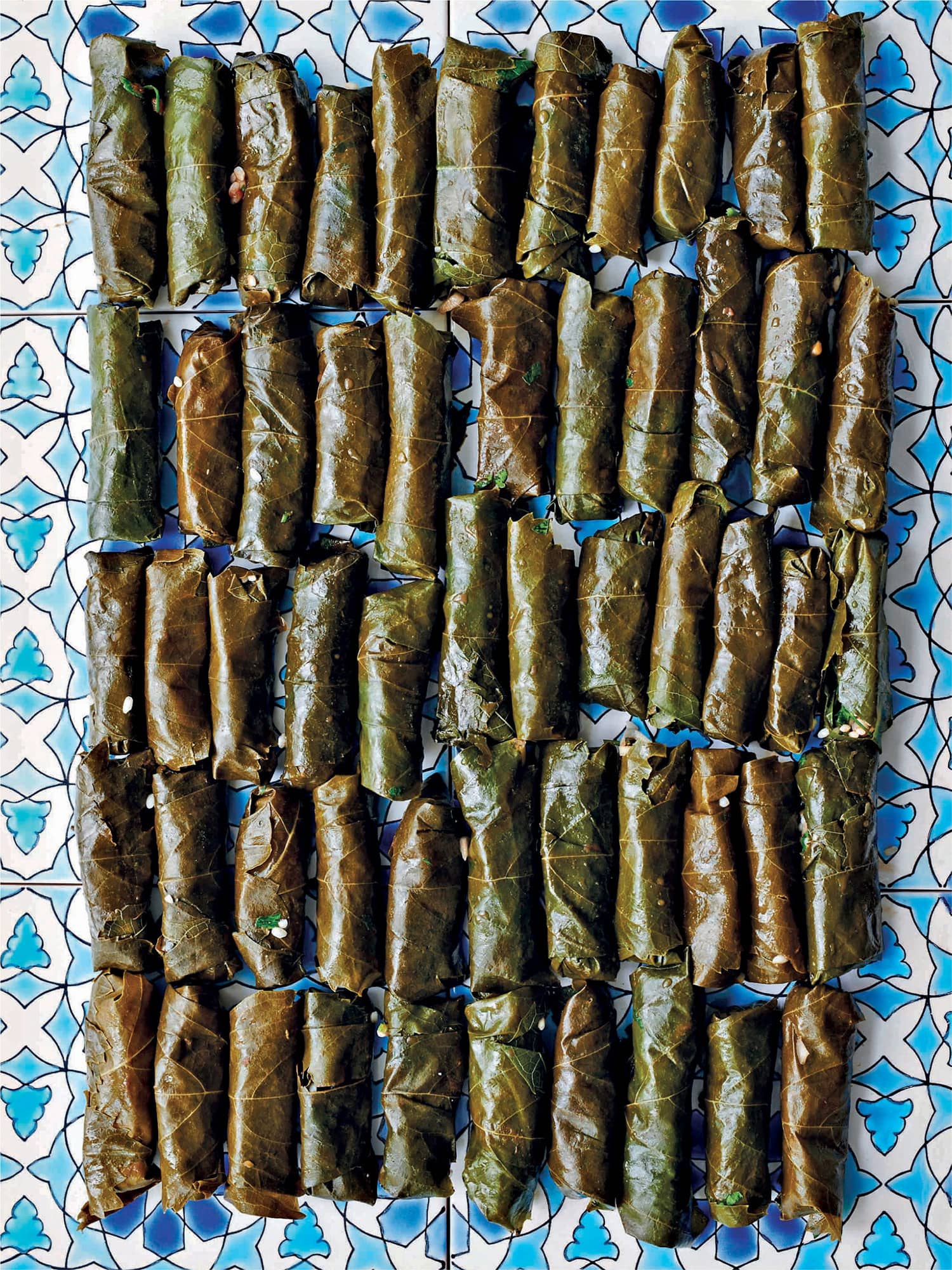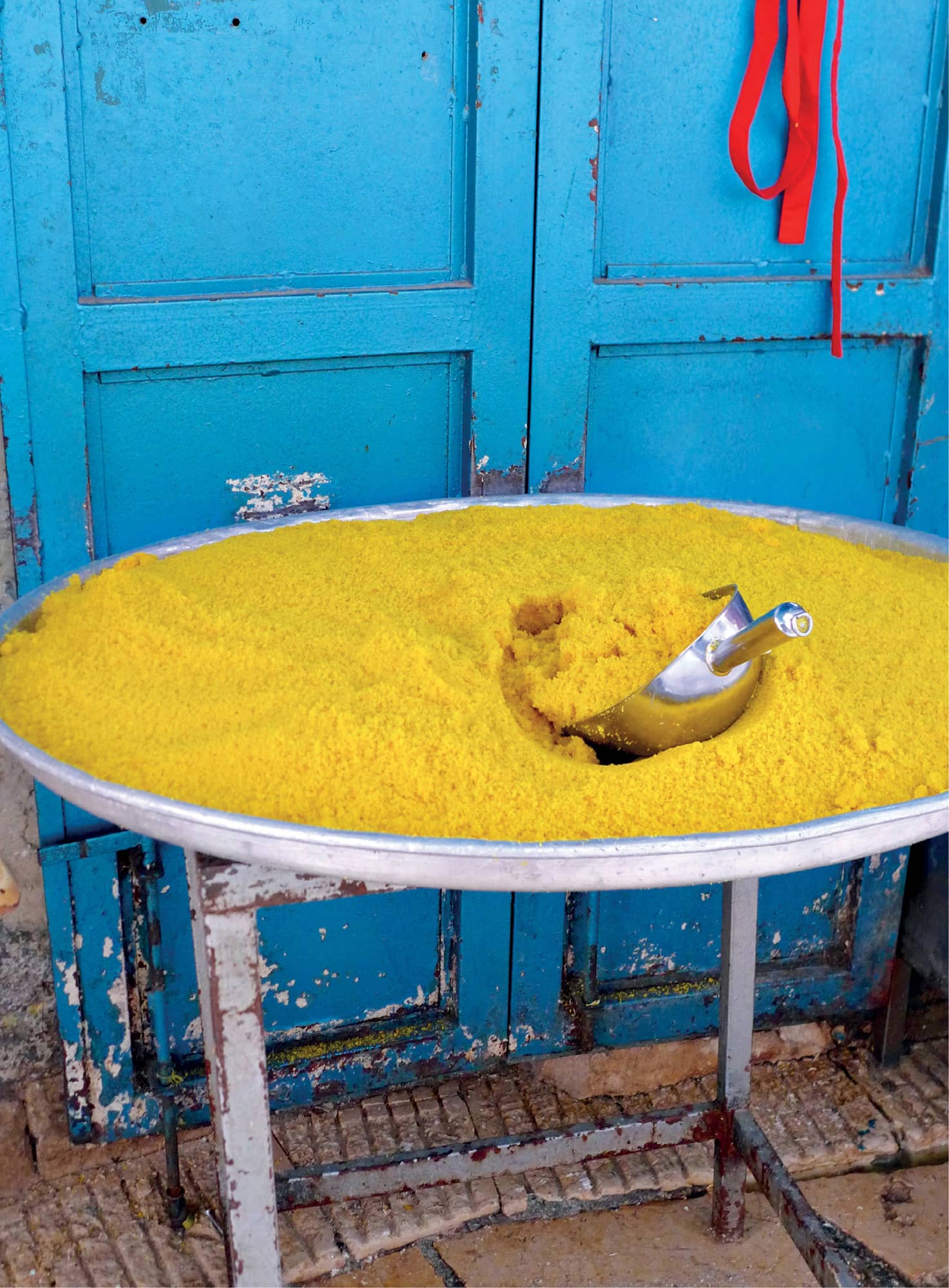Palestine
on a
PLATE
Memories from my mothers kitchen
JOUDIE KALLA


First published in 2016 by
Jacqui Small LLP
An imprint of Aurum Press
7477 White Lion Street
London N1 9PF
Text copyright 2016 by Joudie Kalla
Design, photography and layout copyright Jacqui Small 2016
The authors moral rights have been asserted.
All rights reserved. No part of this book may be reproduced, stored in a retrieval system or transmitted, in any form or by any means, electronic, electrostatic, magnetic tape, mechanical, photocopying, recording or otherwise, without prior permission in writing from the publisher.
Publisher: Jacqui Small
Senior Commissioning Editor: Fritha Saunders
Managing Editor: Emma Heyworth-Dunn
Project Manager and Editor: Abi Waters
Design and Art Direction: Manisha Patel
Photographer: Ria Osbourne
Prop Stylist: Lucy Harvey
Production: Maeve Healy
Digital edition: 978-1-91112-704-8
Hardcover edition: 978-1-91025-474-5
A catalogue record for this book is available from the British Library.
2018 2017 2016
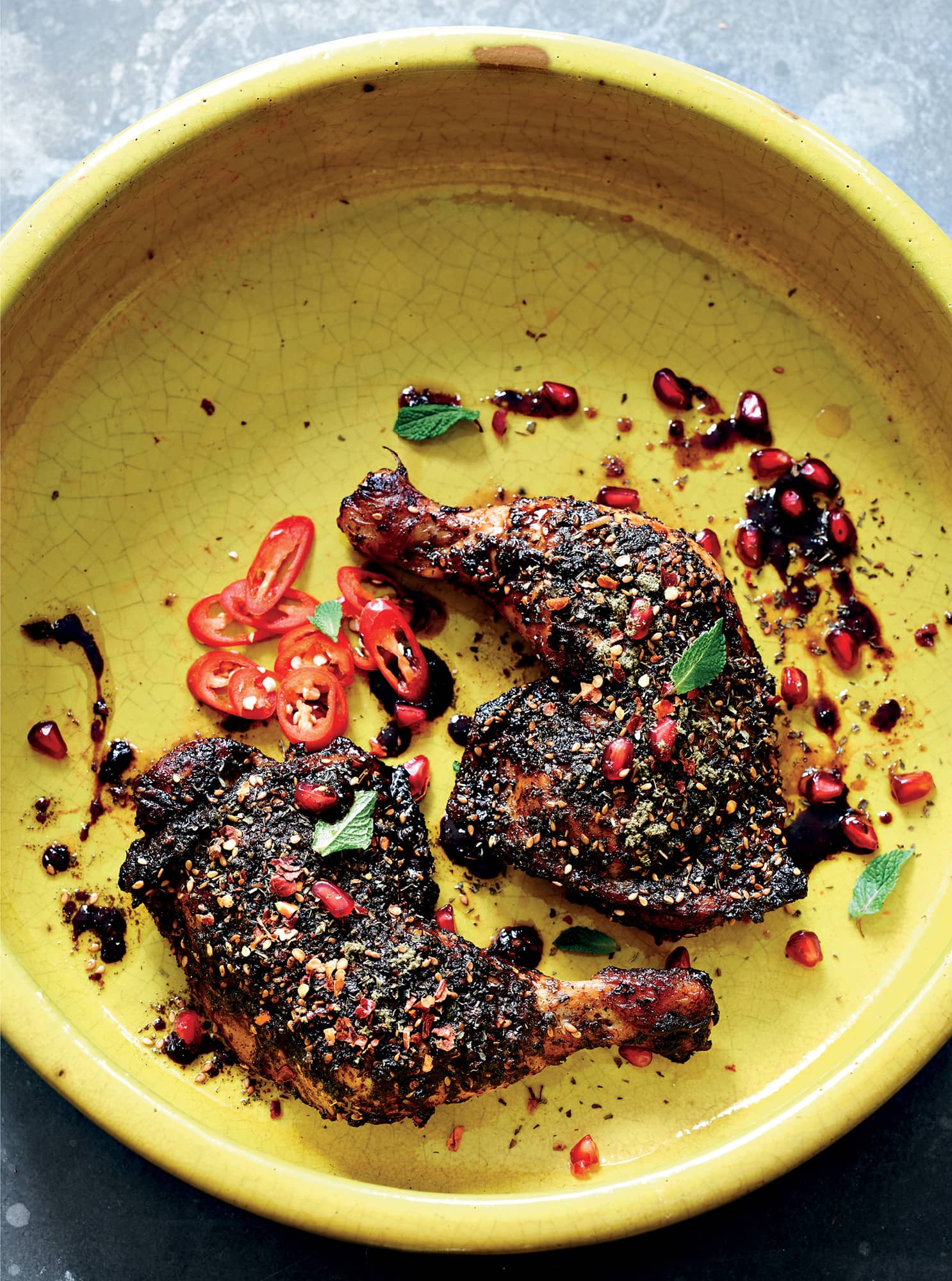
When following the recipes, stick to one set of measurements (metric or imperial). Measurements used in the recipes are based on the following conversions:
25g = 1oz
1 tsp = 5ml
1 tbsp = 15ml
30ml = 1fl oz
240ml = 8fl oz = 1 cup (for both liquid and dry volume ingredients)
Contents
Guide
Introduction
My home is Palestine. Even though where I grew up wasnt geographically in Palestine, everything about our family life was Palestinian. Palestinian families have this innate yearning for community and it starts in the home. I lived with my siblings, aunties and parents and we were always together. Whether it was going on holiday, enjoying parties or simply having dinner, being together was what was important. The food we ate was always traditionally Palestinian, exactly what my parents had enjoyed when they were children. As we grew up, the dishes stayed the same, the food bonded us and helped to create a real sense of family a Palestinian family.
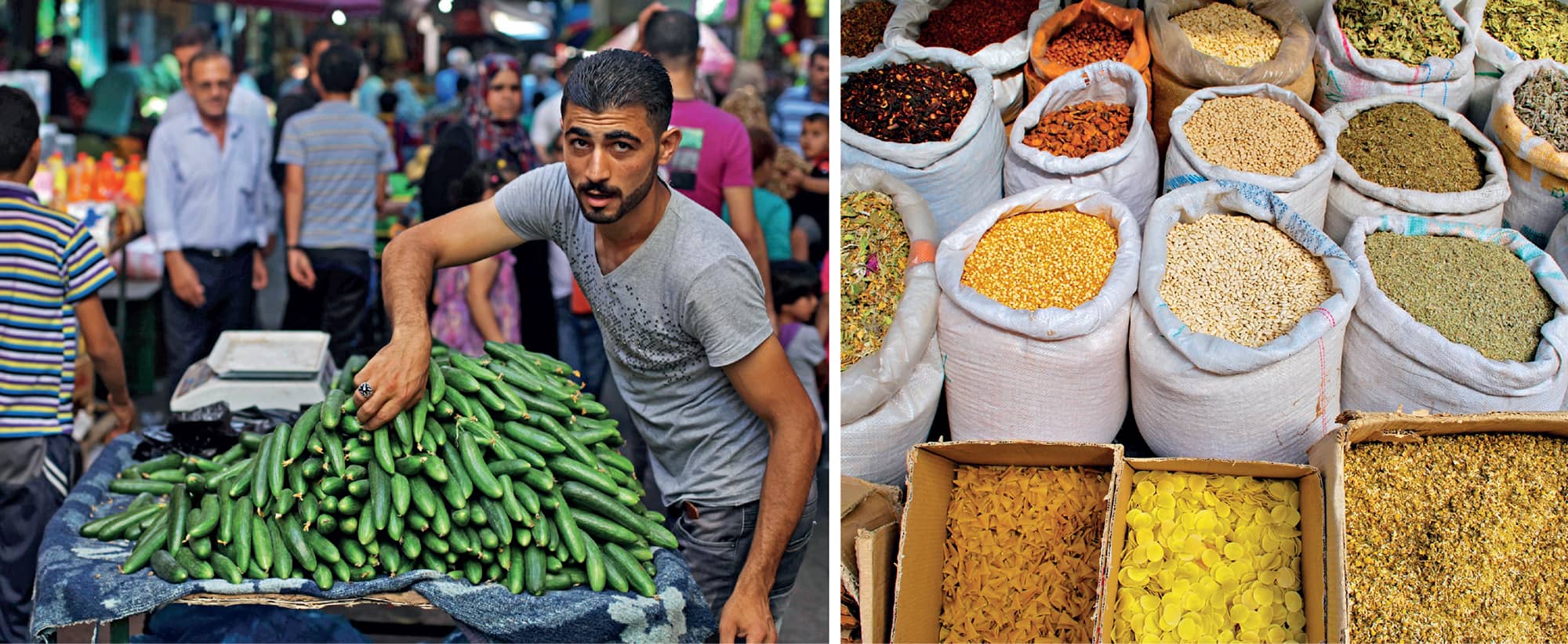
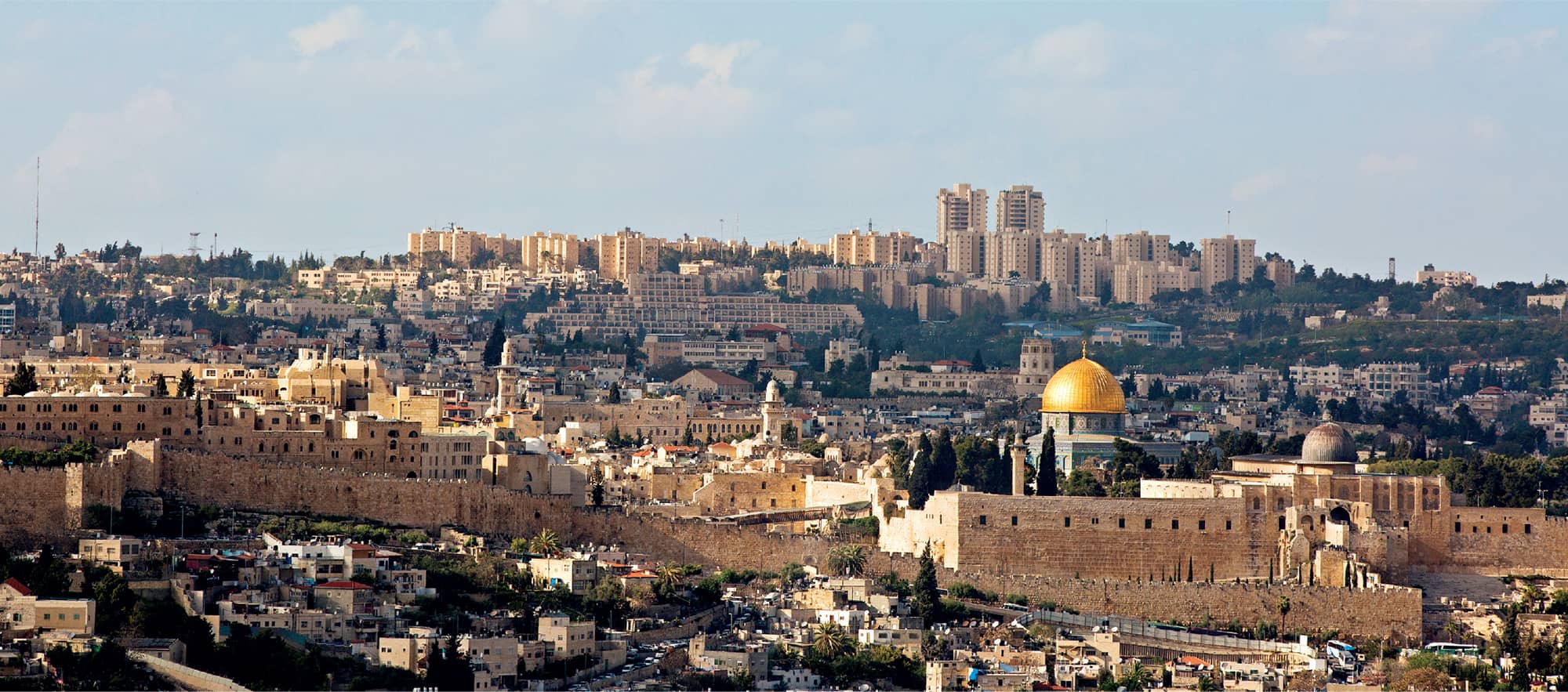
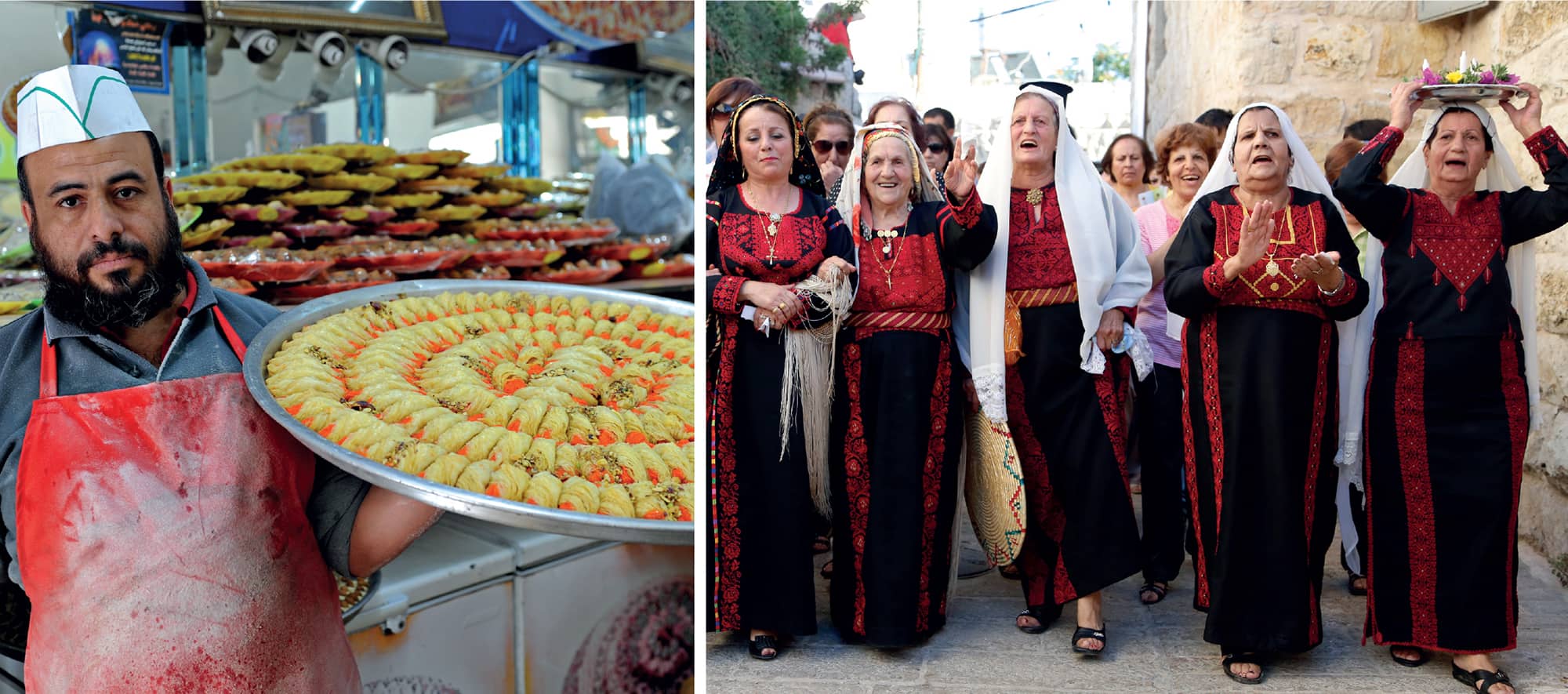
My Journey
Regrettably, I was 21 before I was fluent in Arabic. My parents were very busy with five children, and even though they tried hard to give us lessons, we werent very focussed. This all backfired one day when I was in Beirut on holiday with my family. I got lost and found myself alone. I could understand Arabic but couldnt speak the language, so I found it hard to communicate to anyone about where I lived and how to get there. Fortunately, I bumped into someone who knew my dad and who offered me a lift home, but this experience sparked something in me. I returned to London and began lessons every day with an amazing and very patient teacher and within a few months I had mastered the language.
After developing my linguistic skills in Arabic, everything changed for me. I became more interested in the food, culture and lifestyle and developed a curiosity about my Palestinian history and background. Every word in Arabic is so descriptive and poetic and has several meanings, which made me even more curious about this ancient, beautiful, historical world that I came from.
I also became aware of my westernized Arab friends. We were all far removed from our basic culture and background, despite having been so exposed to it during our adolescent years, but we all wanted to learn more about it. We were growing up, becoming independent, yet we also wanted to learn about our families heritage and to have stories, memories and recipes to pass on to our future families, which is inherent to keeping traditions and our culture alive. During this journey of discovery, it became clear that food was the main connection between us. It was the start of a journey that I am still on, and they are still on, too. Of course, we didnt all go on to become chefs, but we started going out to restaurants less often and dinner parties at home became more popular, where we began to share our stories and recipes. Everyone has their own versions of how to cook different dishes, which is great as we all add our own spin on things.
When I moved to Paris for my masters degree, I genuinely felt homesick as I had never lived away from home before. I stayed in an area where lots of Arabs lived, which only intensified my yearning for home. I saw all the bakeries and restaurants cooking things that we ate at home and that was it; my interest and need for knowledge about Palestinian cuisine began. I called my mother every day to ask her how to make the different dishes she had cooked for me when I was growing up. I learnt how to make warak inab (stuffed vine leaves), makloubeh (an upside-down rice dish with aubergines and lamb), molokhia (jute mallow leaves turned into a soup with chicken), and countless other dishes, and this is where my journey began as a chef. I left my degree course after six months and enrolled at Leiths School of Food and Wine in London. This experience opened my eyes to a world of discipline and order, commitment and hard work. My life changed from that moment on as I started on my professional food journey.
My restaurant, Baity Kitchen, was my outlet for all things Palestinian and delicious. I had Baity Kitchen in London for three wonderful years. Having to close the restaurant did not deter me though, as my clients were so supportive and encouraged me to start hosting monthly supper clubs in London (which has now grown into a successful catering business). My restaurant (and now my supper club) was like a hub for us all to sit and gather; not just Arabs, but people from all walks of life. Everyone who walked in felt at home, because the food reminded them of home.
Maintaining our Roots
Palestinian food is an identity. It is something that we hold very dear to our hearts as it is drenched in history from the generations that have passed. Palestinians are warm, homely, family-loving people; humble and devoted. Life is about living, giving and keeping Palestinian history very much alive. Celebrating and enjoying our cuisine and our roots is something we feel strongly about. This is how


